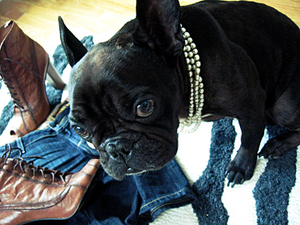Canine progressive retinal atrophy (PRA) is a group of inherited eye diseases which are among the most common causes of inherited blindness in domestic dogs. Extensive study and characterization of the various PRAs have led to the discovery of well over a dozen different genetic mutations in many different genes which can now be identified to help prevent, predict, or diagnose PRA in many breeds. However, complicated PRA naming schemes and the breed-specific nature of the PRA tests can make it challenging for dog breeders or veterinarians to select the correct test for the dog in front of them.
Multiple Genes, Similar Clinical Findings
The known underlying mutations associated with the various forms of PRA are found in a wide variety of different genes. Thus, highlighting the complexity of the biological pathways involved in the development and ongoing maintenance of the eyes. PRAs are marked by the abnormal development and/or the gradual degeneration of rod and cone photoreceptor cells of the retina. Each type of PRA may display variation in the age of onset, speed of disease progression, and the relative rates at which each of the two photoreceptor types are destroyed. However, when it comes to clinical ...

